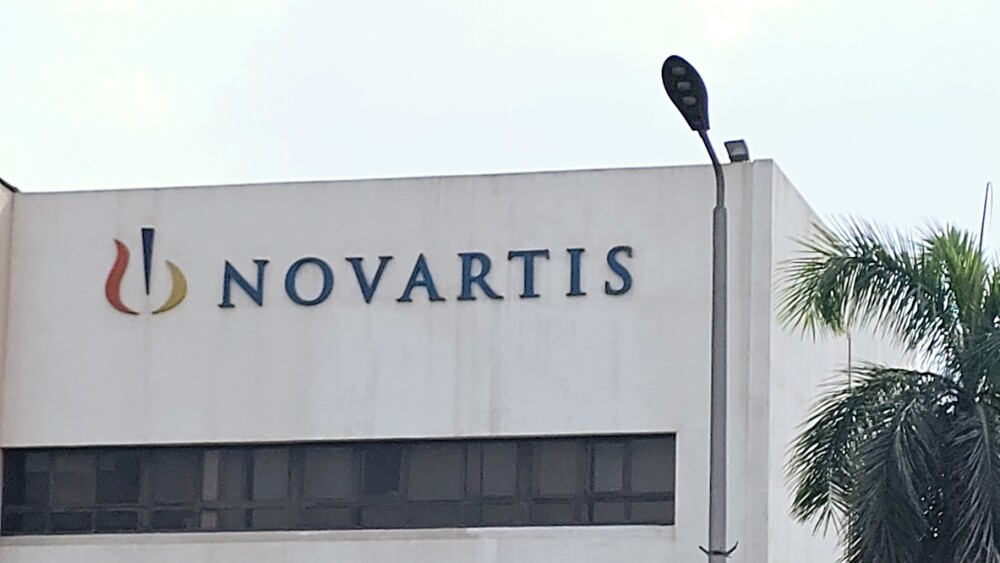“This Joint Venture is especially exciting because it establishes a wonderful and important precedent. This is the first of hopefully many scientific collaborations between Hadasit and BWH/HMS, all world leaders in medical research. We take great pride in working alongside such esteemed partners,” said Professor Shlomo Mor-Yosef, Director General, Hadassah Medical Organization. “Hadassah Medical Organization and Brigham and Women’s Hospital share a firm commitment to developing groundbreaking therapies for life altering and life threatening diseases. It is through this special alliance that we strive to find a treatment for autoimmune diseases, which affect millions of people worldwide. Clearly, there is blockbuster market potential for the ones who develop a viable treatment or cure. Our joint venture is a calculated investment that we believe will not only reap an impressive return for Hadassah and its existing and potential partners, but also make a significant impact on existing treatment protocols.”
The combination therapy is a cocktail of a Monoclonal Antibody (Anti-CD3), in development at Harvard Medical School, and a line of Glycolipid compounds, currently in development at Hadasit, based on research led by a senior Hadassah physician. Clinical data shows that the Glycolipid compounds, which activate specific cells in the immune system when given orally, can be used for all oral applications and without adverse side effects. Pre-clinical studies demonstrated the same results for the monoclonal antibody, but in animal models. Pre-clinical studies also suggest that the core oral administration of the combination of the two has a profound immune modulatory effect and in several models, a direct and beneficial influence on disease activity.
“Monoclonal antibodies are widely used in medicine intravenously but they have never been given orally in humans. It now appears possible to correct the imbalances in the immune system and subsequently treat a wide number of human diseases with an oral, non-toxic therapy. We know that both the monoclonal antibody and the Glycolipid compound have a standalone therapeutic effect. However, we also have evidence, from animal models, that the combination of the two stimulates the immune system better and elicits a stronger, additive effect,” said, Dr. Howard L. Weiner, a Robert L. Kroc Professor of Neurology at Harvard Medical School, the Director of the Partners Multiple Sclerosis Center at Brigham and Women's Hospital and a pioneer in the fields of oral tolerance and oral administration of the monoclonal antibody.
Autoimmune diseases are disorders caused by an immune response directed against the body's own organs, tissues and cells. There are more than 80 clinically distinct autoimmune diseases. These include systemic lupus erythematosus, rheumatoid arthritis, multiple sclerosis, Type I and Type II diabetes, and Crohn's disease.
The collaborative therapy will be tested in a Phase I safety and efficacy study in 20 healthy volunteers at Hadassah Hospital beginning in February 2008. The trial will investigate the safety and dosing of the combination therapy as well as monitor for immunologic effects. Assuming all goes smoothly, plans are now in development for a subsequent Phase I safety and efficacy study of the treatment in patients with an autoimmune disease. The second study will be conducted at both Hadassah and Brigham and Women’s Hospital and will likely include up to 50 patients.
About Hadasit
Hadasit (www.hadasit.co.il), the Technology Transfer Company of Hadassah Medical Organization (HMO) in Jerusalem, Israel, promotes and commercializes HMO’s continuously generated intellectual property (IP) and R&D capabilities. IP generated by HMO has already gained global recognition due to Hadasit’s successful enterprising of Hadassah’s biomedical technology, including novel therapeutics, diagnostics and devices. For additional information or to schedule an interview, please contact Marjie Hadad, Media Liaison, Hadasit, at +972-54-536-5220 or e-mail pr@marjiehadad.com or marjie@netvision.net.il.
About Brigham and Women’s Hospital
Brigham and Women's Hospital (BWH) is a 747-bed nonprofit teaching affiliate of Harvard Medical School and a founding member of Partners HealthCare, an integrated health care delivery network. BWH is committed to excellence in patient care with expertise in virtually every specialty of medicine and surgery. The BWH medical preeminence dates back to 1832, and today that rich history in clinical care is coupled with its national leadership in quality improvement and patient safety initiatives and its dedication to educating and training the next generation of health care professionals. Through investigation and discovery conducted at its Biomedical Research Institute (BRI), BWH is an international leader in basic, clinical and translational research on human diseases, involving more than 860 physician-investigators and renowned biomedical scientists and faculty supported by more than $416 M in funding. BWH is also home to major landmark epidemiologic population studies, including the Nurses' and Physicians' Health Studies and the Women's Health Initiative. For more information about BWH, please visit www.brighamandwomens.org. Contact Kevin C. Myron at kmyron@partners.org or call 617-534-1605.
About Harvard Medical School
Harvard Medical School has more than 7,500 full-time faculty working in 11 academic departments located at the School’s Boston campus or in one of 47 hospital-based clinical departments at 17 Harvard-affiliated teaching hospitals and research institutes. Those affiliated include Beth Israel Deaconess Medical Center, Brigham and Women’s Hospital, Cambridge Health Alliance, Children’s Hospital Boston, Dana-Farber Cancer Institute, Forsyth Institute, Harvard Pilgrim Health Care, Joslin Diabetes Center, Judge Baker Children’s Center, Immune Disease Institute, Massachusetts Eye and Ear Infirmary, Massachusetts General Hospital, McLean Hospital, Mount Auburn Hospital, Schepens Eye Research Institute, Spaulding Rehabilitation Hospital, and VA Boston Healthcare System. For more information please visit
http://hms.harvard.edu/hms/home.asp . For additional information or to schedule an interview please contact Alyssa Kneller at public_affairs@hms.harvard.edu or call 617-432-0442.
About Hadassah University Medical Center
The Hadassah University Medical Center is a state-of-the-art medical center incorporating all medical and surgical sub-specialties. With a 750 beds tertiary care referral hospital at Ein Kerem and a 300 bed community hospital on Mt. Scopus, Hadassah University Medical Center in Jerusalem conducts half of the hospital research in Israel. The flagship of Hadassah, the Women's Zionist Organization of America, which laid the foundation of Israel's medical infrastructure, initiated and maintains educational programs and youth institutions, and is the main supporter of The Hadassah Medical Center, which is committed to excellence in health care, medical research and medical education. Together with the Hebrew University, Hadassah runs five academic schools of medical professions. Hadassah treats everybody, regardless of race, religion, gender, ethnicity or political persuasion, and provides medical services to nearly one million people annually. www.hadassah.org.il




